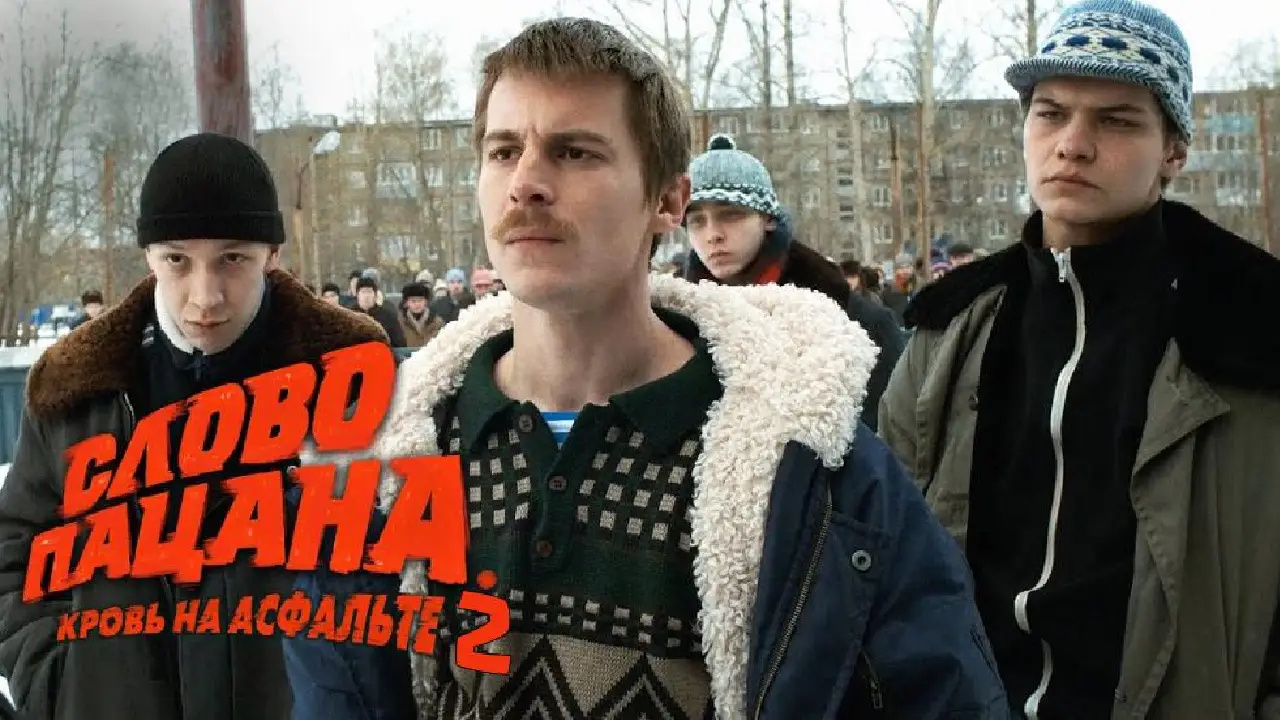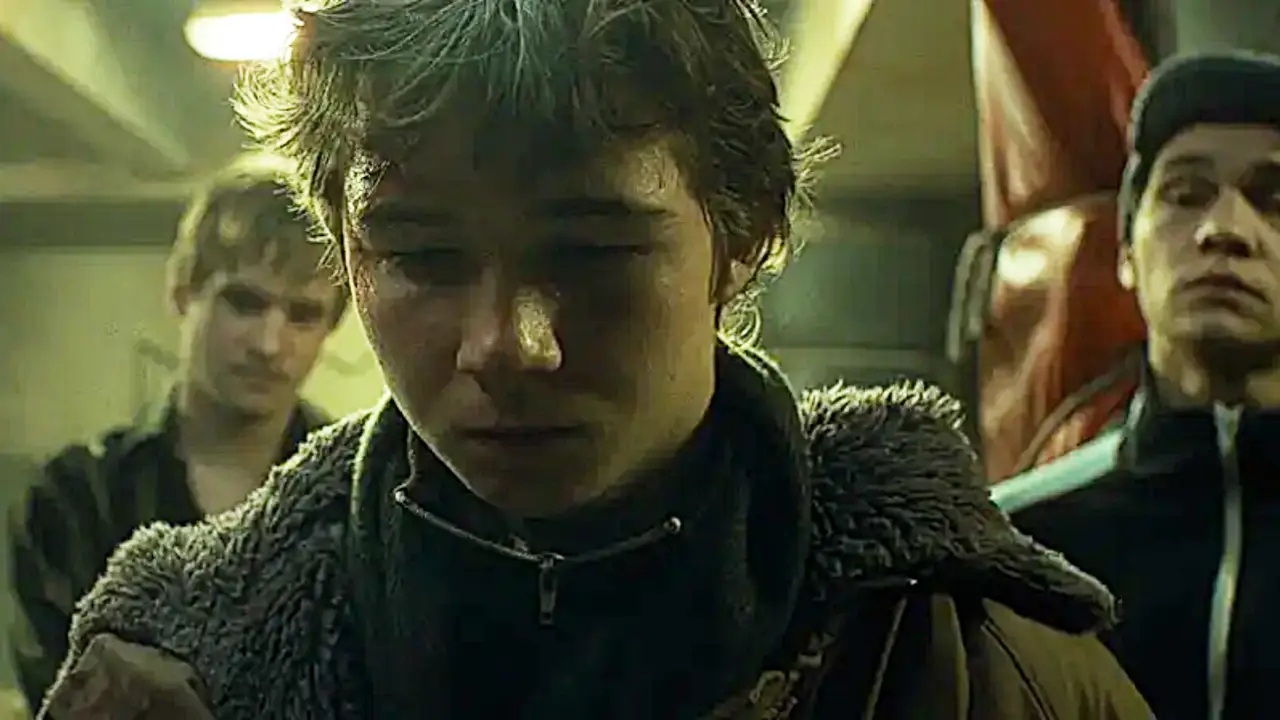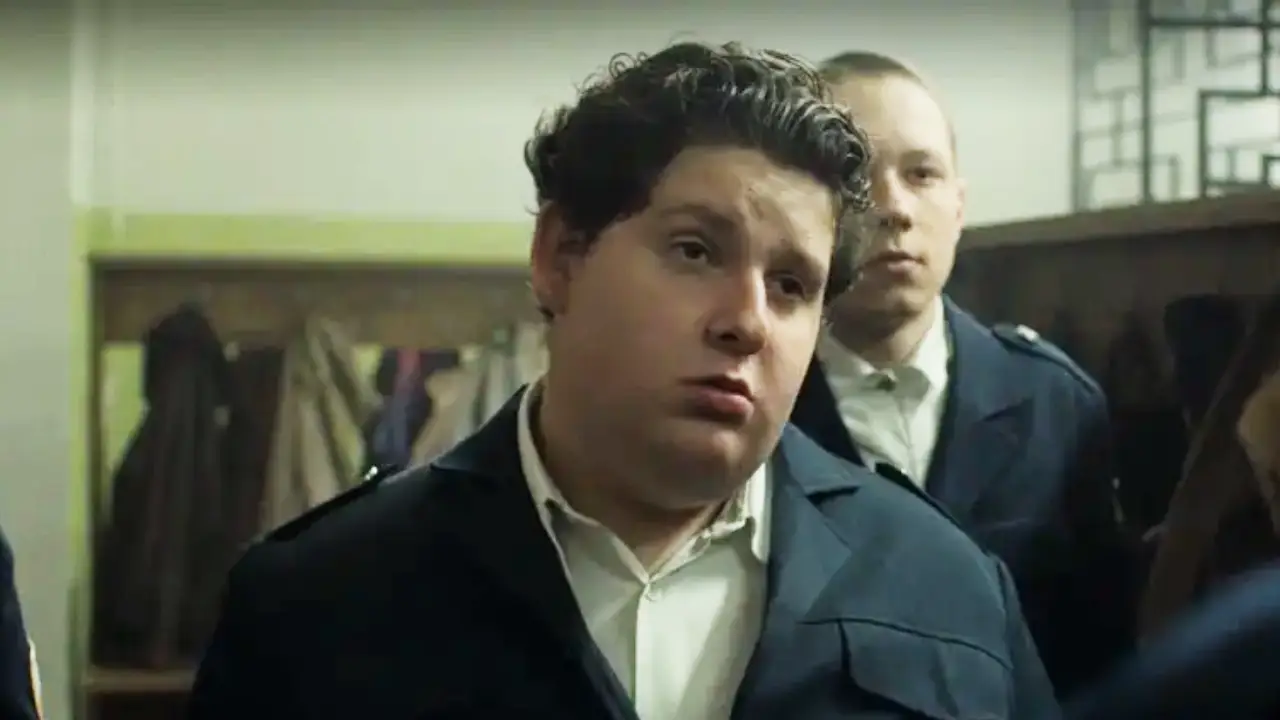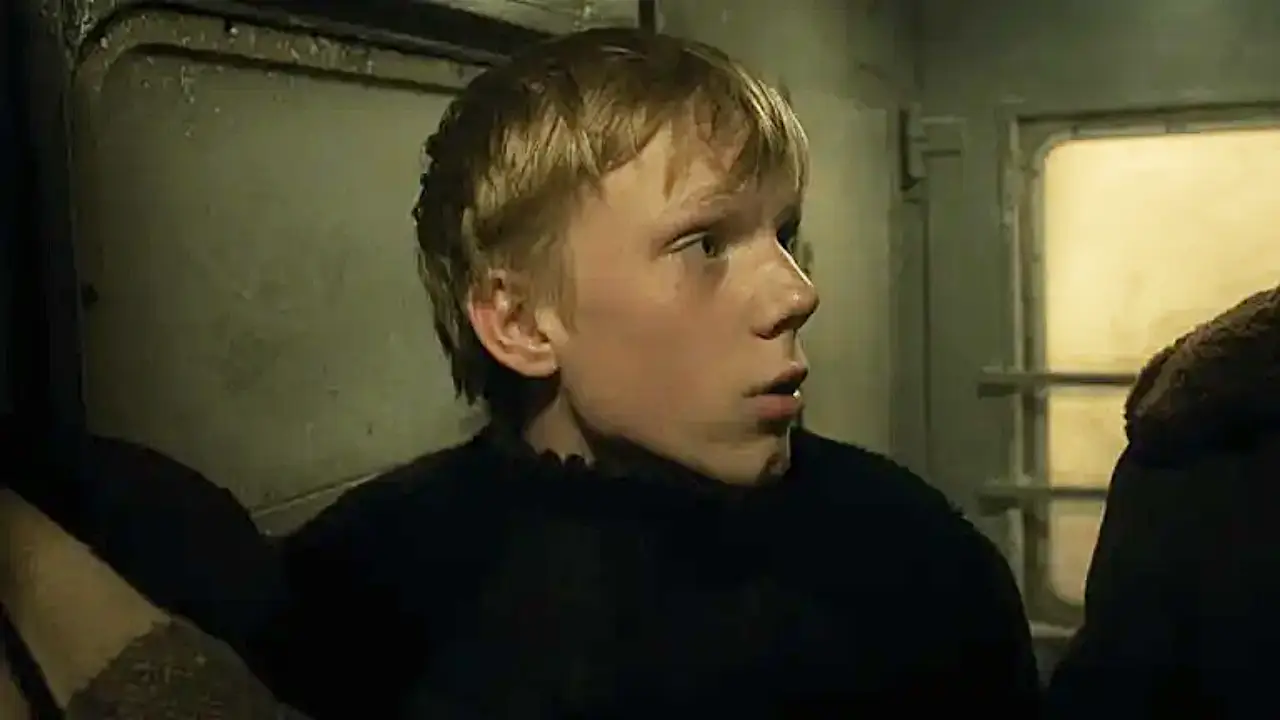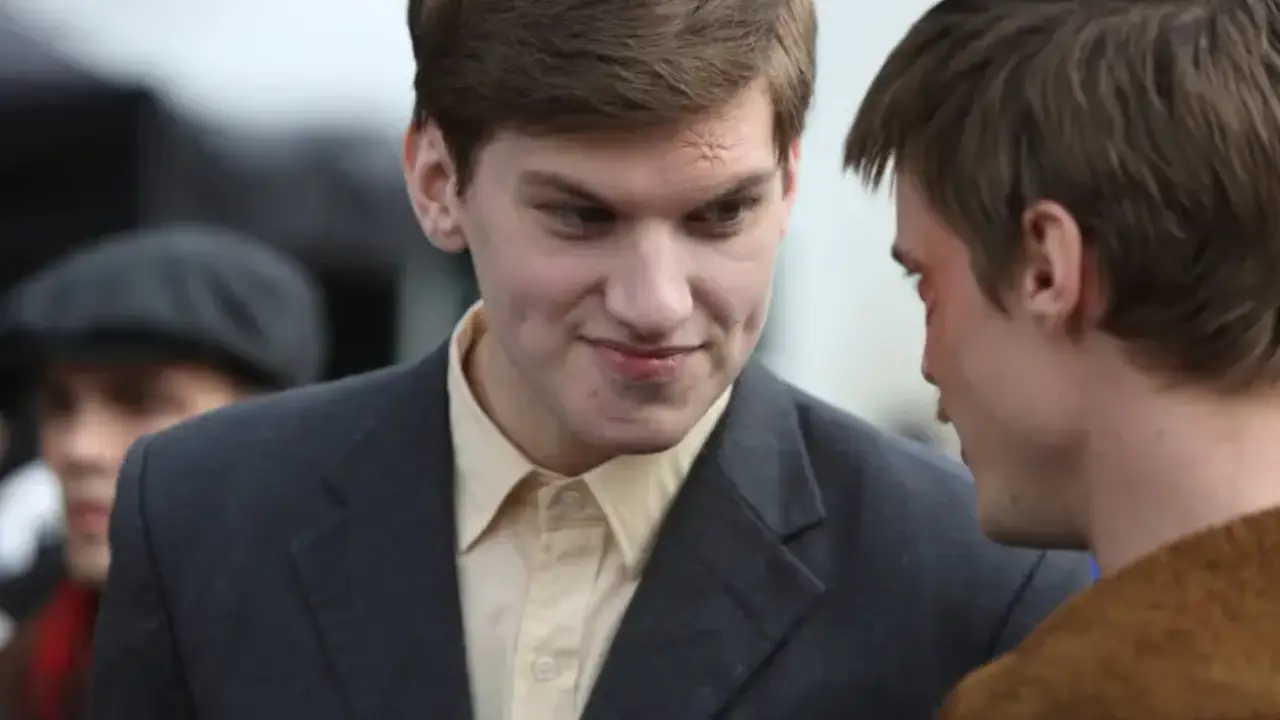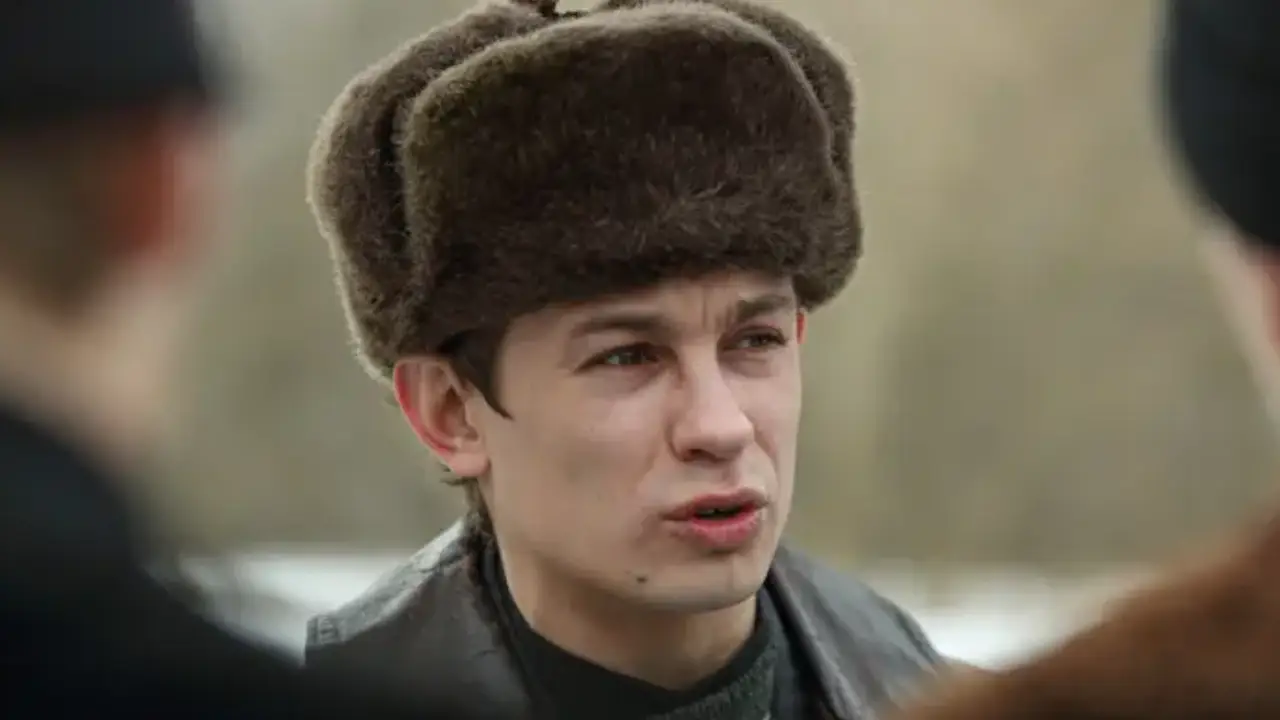All Steven Spielberg Movies Ranked from Worst to Best
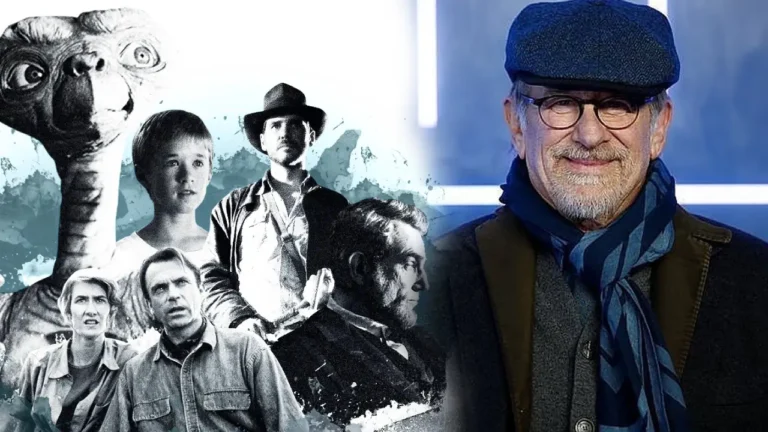
Steven Spielberg is a name that has become synonymous with Hollywood greatness and creative genius. Ask any film lover who has made the greatest contribution to the development of modern cinema, and most will answer without a doubt - Steven Spielberg. This talented director, producer and screenwriter has become famous for his virtuosity in creating unforgettable and exciting films that have left an indelible mark on the history of cinema. From grand adventures and fantasy stories to heartwarming dramas and historical epics, Spielberg spans a wide variety of genres, experimenting and refining his art over the decades. In this article, we'll take a look at Steven Spielberg's films, ranked from worst to best, to take a look back at some of his most striking and significant work that left an unforgettable impression on millions of viewers around the world. Discussions and opinions differ, and everyone can have their own point of view, but let's dive into the amazing world of cinema together, created by one of the most outstanding directors of our time.
List of all Steven Spielberg films - rating list
28. “Big and kind giant” (2016)
- Do you think that if a giant, it means necessarily greedy? I stole you a little.
Steven Spielberg's first and last work for Walt Disney Pictures at a time when the fashion for remakes of the studio's already cult animated works was only in its infancy at the "mouse" corporation. This film is based on the novel of the same name by Roald Dahl, and Spielberg tried to transfer all the flavor of the writer to the big screens of his new film. However, it turned out with very variable success: “The Big and Kind Giant” looks like a banal and mediocre story that modern children do not need about typical self-acceptance and discrimination from the public, accompanied by faded humor, undisclosed and very small locations and a fairly acceptable level of graphics, not without reason The visual company Weta FX, which worked on the trilogy of The Lord of the Rings and King Kong by Peter Jackson, as well as the first Avatar by James Cameron, worked on the film. Alas, the visual could not save the “Giant” from a stuffy narrative and a very trivial and childishly naive script, from which even very young viewers will yawn
27. Indiana Jones and the Kingdom of the Crystal Skull (2008)
Don't pick on him because of school! It is not given to everyone.
- He's your son!
- My son?!
- Yes. Henry Jones Third!
Why did he drop out of school?
Of course, Spielberg, although he is already a cult figure in the circles of both cinephiles and ordinary viewers, is a creator, but even he sometimes urgently needed quick money. And it was easy to cut them down in the continuation of his trilogy about the elusive archaeologist Henry Jones Jr. Alas, although the “Kingdom of the Crystal Skull” is trying to export on nostalgia, the director and screenwriters can’t cover up an extremely mediocre and delusional story, entirely tied to science fiction. Yes, the first three films about Indiana were also not famous for realism, but there all the “crazy” action scenes and stunts were accompanied by a pleasant staging and composition, and you can merge this joint with the fact that the trilogy was created in the 1980s - then it looked a little or not every major blockbuster. However, in the fourth part, Spielberg and his team delivered a real level of delirium and insanity, coupled with a very strange storyline of Jones himself resolving problems with his love from the first part and their illegitimate son. Indiana Jones has always been a down-to-earth action adventure, not anabolic sci-fi where a person can survive a nuclear explosion by locking themselves in a refrigerator. We hope that the fifth part of James Mangold, "Wheel of Fate", will follow the rules of the old trilogy, and not a quad
26. Jurassic Park 2: The Lost World (1997)
I'll be back in five or six hours.
“You will come back torn into five or six pieces!”
Another example, when Spielberg urgently needed money, and normal ideas for the continuation of his cult work were never invented by him. “The Lost World” is a very uneven and hasty tracing paper from the very first part, which in some places tries to resemble a gloomy and tough survival game in the wild jungle with dinosaurs as pursuers for the main characters, but this approach looks rather ridiculous and ridiculous in the “Jurassic period” than worrisome. In addition, the sequel to "Park" looks more like a hacky cheap job, with a very short and boring script that is stretched as far as possible for at least two hours of running time and mediocre practical effects that look cheaper than in the first part. Yes, as a child, the sequel looked cheerful, but over time you begin to understand that it is inferior to the original in literally everything, and cannot offer the viewer anything new at all. It's good that Colin Trevorrow upgraded the franchise in 2015 with his first Jurassic World, despite the subsequent two shameful films for this universe.
25. Close Encounters of the Third Kind (1977)
They haven't even aged. Einstein was right.
Einstein was probably one of them.
Back in the 1970s, at the very beginning of his long film career, Spielberg slowly began to try his hand at different genres: after "Duel" and "Jaws", made in the style of action thrillers with inhuman evil as antagonists, Steven took up the genre of fiction, filming in 1977 "Close Encounters". And it's hard to deny the fact that the tape instantly became a cult thing in American cinema, which defined several generations at once. In the future, many projects will be inspired by Spielberg's first fantastic attempt at writing: the atmosphere of the unknown, extraordinary characters who react differently to the paranormal phenomena that happen to them, very cool practical effects that can set odds even for today's CGI and VFX, but what about this tape corny outdated for modern cinema. As an introduction to the classics, the film is definitely recommended for viewing, however, it should be noted that "Close Encounters" is almost the most outdated work in Spielberg's career, despite its cult status.
24. Lincoln (2012)
“If Lincoln really was a tyrant, Mr. Wu, he would have impaled your empty head by now… and the nation would have only benefited.”
Spielberg is very good at working in two directions: as a director of war films, and as a director of biographical stories. Several times throughout his career, the director combined these genres, and he decided to do it again, shooting in 2012 "Lincoln" - literally the autobiography of an undeniably great American president who defined a new era in the history of Americans themselves. And the main trump card of the director in his new film was not so much his name as the name of Daniel Day-Lewis, whom Spielberg called for the role of Abraham Lincoln himself. But all of the above factors simply do not save the tape from the fact that it is very dull. And Day-Lewis here is the only one who makes you want to watch the picture through force, without turning it off halfway. Alas, “Lincoln” is entirely an Oscar film, and not for a mass audience.
23. “The Adventures of Tintin: The Secret of the Unicorn” (2011)
“I thought you were an optimist…”
So you were wrong - I'm a realist.
"That's what the cowardly cowards call themselves!"
Belgian comics about Tintin, an independent young detective journalist, are generally a difficult thing for an expensive Hollywood adaptation. But Spielberg decided to take the job in earnest, using the then-on-the-flying motion capture technology to create a fully digitized character on screen. But taking as a basis an incredibly childish and clichéd comic book arc about a character whose naivety even The Big Good Giant, which Spielberg will take on five years after Tintin, would envy, the director tried to give it more seriousness and gloominess. Did it work? With varied success. "Tintin" looks more like a pen test for further animated blockbusters from larger studios, and not a new fully expensive work in the director's career, although this franchise clearly had potential. However, even today there are various rumors that the same Netflix are going to re-tell the story of Tintin. I wonder if all these rumors will turn into something more
22. "Duel" (1972)
“Look, you are the boss here.
“Not in your own house.
So, the first full-fledged film in the career of Steven Spielberg is an action-packed “road” thriller about chasing a car from an old “ghost” driverless truck chasing him, filmed in just 10 days with a budget of about 500 thousand dollars. Even then, in the early 1970s, Spielberg unleashed his talent to the fullest: a gloomy and lingering atmosphere, a limited number of characters and locations, a symbolic story through which the main character goes through his own story arc, turning from a stiff and cowardly husband into a real brave man , which rebuffed another difficulty on its way, and most importantly - tension. Young Spielberg was really able to create suspense in a seemingly completely empty place, when the viewer is afraid of any sound, fearing that evil will appear in front or behind in the face of a material inanimate truck. But it's hard to argue with the fact that "Duel" today looks more like the first attempt at writing for Spielberg, which, nevertheless, went well! And yes, I can’t help but note that this story would have been more suitable for the format of a 40-minute short film, rather than an hour and a half film, with an emphasis on the fact that it was already based on a short story
21. "Alien" (1982)
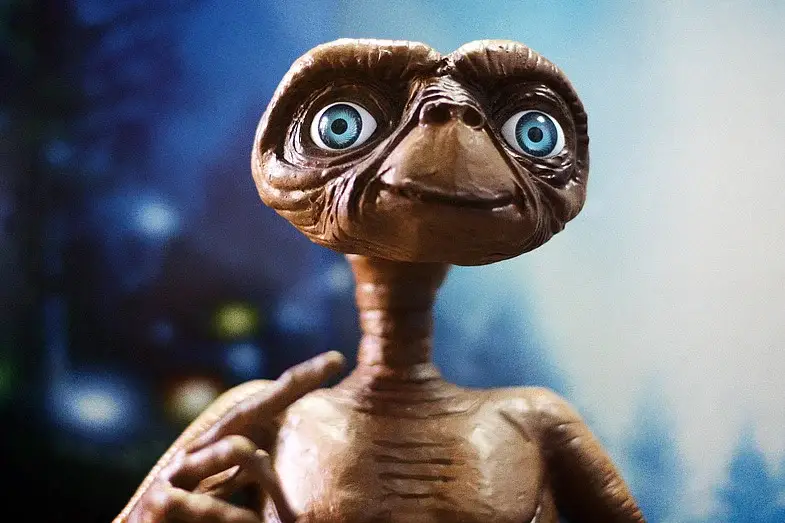
— So, it came from outer space and we are taking it to the spaceship.
Can't he teleport?
“It's not fantasy, baby.
All the nostalgia for the eighties is reflected precisely in “Alien” - already a truly cult work in the career of Steven Spielberg, a film that in America today is considered a real film classic, which the same Disney continues to equal in their family films. Although, it would seem, on the surface of the “Alien” lies a rather banal children's story about self-acceptance, childhood friendship, relationships with extraterrestrial civilization and the main moral: it is still too early for humanity to contact space races. Even if Spielberg's tape alone can truly be called a cinematic genius, this does not negate the fact that "ET" is outdated in exactly the same way as "Close Encounters of the Third Kind", and it was filmed for a very young audience.
20. "Artificial Intelligence" (2001)
- If he was created for love, then it is reasonable that he knows how to hate.
Initially, “Mind” was supposed to be directed by Stanley Kubrick, but the great creator died shortly before the start of full-fledged production of the tape. Therefore, Steven Spielberg took on the production of the film, in parallel using many of Kubrick's screenplay developments in the creation. Did Spielberg manage to follow in the footsteps of the late film genius? Yes and no at the same time. Unfortunately, the story of “Artificial Intelligence” is the maximum hodgepodge of the achievements of both the first and the second director: here you have an incredibly touching drama about human relations, and insane fiction, as if coming from a symbiosis of “Blade Runner” and “Tron”, and social agenda in the spirit of modern Detroit by Quantic Dream. The first two acts in the film are completely the work of Spielberg, it is felt even by the same visual, but the third act is already the work of Kubrick, felt in philosophy and a rather tragic, but no less good ending. However, “Artificial Intelligence” is not primarily a film about robots or some other science fiction, but a story about family and love, which can really bring you to tears in the end. But the potential was not fully revealed, unfortunately
19. “Secret file” (2017)
Do you know what my husband said about this news? He called it the first draft of the story.
One of the most unremarkable films by Maestro Spielberg, which is a typical socio-political American agitation criticizing the US government. It is extremely not typical for the mastodon reviewed in today's article, you must agree. “The Secret File” is a film from an American patriot, created for American patriots (well, for “cotton wool”, let's go further), who will find it very difficult to find the sympathy of a foreign audience. However, the film takes out a talented cast completely on its shoulders: and now I’m not talking not so much about the same Tom Hanks, but about the magnificent Meryl Streep, the amazing Bob Odenkirk (he proved that he is not a hostage to one television role) and Sarah Paulson who conquered me. But despite some suspense, this political thriller (if you can call it that) is still a purely “American” picture, the value of which cannot be redeemed by an ordinary, basic, viewer.
18. "War Horse" (2011)
– Friendship is an important thing, even if a friend says hello.
Spielberg has a knack for making great war films out of the blue, and in his film War Horse he once again tried to deviate from the genre's clichés, which both worked and didn't work for the tape. “Horse” is the very case in cinema when the film becomes many times better and more dramatic if you remove from the story ... the main storyline, which seems to hold back the shackles of screenwriters and other authors. However, this also applies to the novel by Michael Morpurgo, on the basis of which Spielberg's tape was created. So in some places it really seemed as if we were not watching a cruel military movie that retells the events of those years to us in detail, but a harsh and dramatic film from some kind of Disney. The experiment was not very successful, however, I can’t call it a truly mediocre “War Horse” - it’s just a picture at a time, not representing any great value
17. "War of the Worlds" (2005)
“This is not a war. Do not call the battle of people and flies a war. This is extermination.
Published at the very dawn of the 1890s, H. G. Wells' novel The War of the Worlds is rightfully considered one of the most iconic fantastic literary works of all time, because it was Wells who first introduced the reader to a large-scale conflict between extraterrestrial and human civilizations. In 1953, they tried to film the work, but it came out with very variable success: the tape received both many well-wishers and haters. However, in 2005, Uncle Spielberg decided on a full-fledged expensive blockbuster based on the novel: for $ 130 million, he filmed, albeit in places uneven and twitchy, chaotic and chaotic, but nevertheless worth expensive science fiction, which (the only one of all film adaptations) transferred the rule to big screens all the tension and all the suspense of the source. Until the very last moment, we are not shown in the forehead the aliens themselves, leaving behind empty destroyed cities and civilizations, but the viewer is frightened simply by the sound made by the tripod, on which the aliens move. Far from perfect fiction, but as an adaptation of the H. G. Wells story, perhaps the best possible
16. Munich (2005)
Our best hopes and worst fears rarely come true.
Steven Spielberg can create both good films with an old social agenda (the same military tapes) and with a modern one: his “Munich” raises questions about the correctness of various forms of combating terrorists (read, evil) and many moral conflicts bordering on violence and the cult of cruelty in society. The tape shows the viewer a typical, but no less correct morality: by punishing monsters, we ourselves become monsters. But it’s not even the artistic value of “Munich” that is important, but whether it correctly presented a real historical retrospective: the events of the autumn of 1972, with the murder of Israeli participants in the Olympic Games by Palestinian terrorists. And, who would doubt, Spielberg succeeded again! What did not save Munich from the fact that the tape was quickly forgotten, and not everyone will remember it today
15. "Jaws" (1975)
“Wait, chief, you want to take revenge on some fish at all costs. But the shark is not evil. She is not a killer. She is a prisoner of her own instincts.
She just eats people...
A mastodon and a real dad of all modern action thrillers. Having worked his hand on a cheap production of "Duel", three years later Spielberg presented to the world perhaps his most iconic work, thanks to which in the future a whole separate direction in the thriller genre will appear. Putting the evil controlled by nature in the form of a shark as the antagonist of the tape, Spielberg very subtly drew parallels between the predator itself and people's attitude to the environment. Managed to catch up on the suspense (not least thanks to John Williams' great soundtrack) with suspense, and do a full job of working on Duel's bugs, filling the film's world with beautifully vibrant visuals and good acting. But is “Jaws” obsolete today? Unfortunately yes. Blood lovers - you are clearly not here, this tape is still a little bit about something else
14. Indiana Jones and the Temple of Doom (1984)
Are you ready to destroy yourself and us for the sake of wealth and glory?
“Maybe, but not today.
After the success of The Lost Ark, Spielberg immediately rushed to cut the sequel to his successful offspring, and such a rush eventually led to the fact that The Temple of Doom became almost the most hacky and cheap film in the entire trilogy. However, this is the special charm of the sequel: it has a limited number of characters, and the main characters from the very beginning of the tape are not present in their “comfort zone” in the form of the United States, but almost immediately fall into the jungle of the Himalayas, which instantly creates a certain anxiety and tension. Many also scold the “Temple of Doom” for being too gloomy, but it is this fact that distinguishes the tape from the same “Ark” or “Crusade” - seriousness, gloominess and pathos. In general, this is already subjective: many, on the contrary, love the second part more than the first and third, believing that the “Temple of Doom” format is ideal for the Indiana franchise. And also thanks to this tape for becoming the progenitor of the PG-13 age rating familiar to today's viewers
13. Empire of the Sun (1987)
- Today I learned a new word - "atomic bomb". It was like a bright flash. It was as if God himself was photographing.
Consider this film a kind of American remake of the Soviet military masterpiece “Come and See”, because the motives and developments of both of these tapes are very similar. “Empire of the Sun” is a film about the Second World War through the prism of a child’s gaze: it’s not without reason that the young Christian Bale himself plays the main character in the film. In fact, Empire does not even have any distinguishing features from other war films of the time, but Spielberg skillfully and realistically was able to show the audience on the screen a child who had gone through the war. Even if the film cannot be compared with the same “Come and See”, to the extent that it is less violent and easier to watch, many of today's cynics should familiarize themselves with it.
12. "Terminal" (2004)
"So you're afraid?"
- Afraid?
- Krakozhia ... You are afraid to return to Krakozhia.
- Krakozhia? No. I'm not afraid of Krakozhia at all. I'm a little afraid of this room.
I'm talking about bombs. I'm talking about the loss of dignity, the violation of human rights. Don't be afraid to admit that you're afraid to come back.
- There's a house. I am not afraid of my home.
One of the lightest films of Steven Spielberg's career, but that's where the charm of The Terminal lies. The tape is so kind, pure and innocent that while watching, willy-nilly, a sincere, clean smile appears on the face. And the scriptwriters and director really managed to fill the small terminal of the New York airport with some charisma and soul: where each character is remembered (not only is it remembered, each has its own separate story arc), and the character of Tom Hanks (who boldly played to the Oscars) serves as a kind of angel who promises good to all terminal workers. Yes, after watching you won’t be able to get any new morality or a certain original meaning for yourself, but this tape doesn’t need it at all: it’s enough that “Terminal” is the kindest film that everyone can watch without a twinge of conscience
11. Minority Opinion (2002)
- Say exactly what you are looking for.
— Defects.
“Not a single murder in six years. What are the defects? System…
- Impeccable. I agree. If there is a defect, then it is in people. It's like always.
How deftly Spielberg wanders from genre to genre, this is truly the envy of every modern director. This time, as a source of history, the creator took the story of the same name by Philip K. Dick, which many readers (I would not say without reason) consider it to be one of the most difficult literary works of the writer. And the first two acts of "Minority Report" really break the head: what the hell is going on here? However, the third act is so masterful at dotting the 'ah', so masterfully weaving all the storylines and character arcs into one single ball, that you just want to stand up and start applauding the genius who directed the production of this whole story. “Minority Report” is a really smart science fiction, which in no case should be watched with a turned off head. Otherwise, you risk drowning in a sea of your own inconsistencies and inconsistencies.
10. Ready Player One (2018)
Why can't you move back? For some time. Move back very quickly as far as possible, survive the pedal to the floor back. Bill and Ted did just that.
Nostalgia for the 1980s has recently become so commonplace that we ourselves did not notice how modern cinema began to intertwine with it. This very nostalgia in his novel was picked up by the 40-year-old geek Ernest Kline, and later by maestro Steven Spielberg himself. And it's hard to even say what came out better: the book or the movie. Because these two works are equally good both from a screenplay and from a fan service point of view. Ready Player One has literally the best use of fan service in cinema in recent years, because behind the prism of all the Easter eggs and references (even to old Spielberg works!) lies a very sensitive and sensual story about the “chosen one”, which abruptly becomes clamped and crazy on the theme of the eighties, the protagonist, with whom Ernest Kline associated himself when writing the novel. “To the First Player” is literally the perfect blockbuster that can entertain both the average viewer and the most seasoned old man who will scream with joy every time he sees on the screen the image of a character he loved in his youth
9. Catch Me If You Can (2002)
- He doesn't have a passport.
“He managed to graduate from both Harvard and Berkeley in the last month. So he will definitely get a passport.
One of the most narratively perfect films of Steven Spielberg's entire career. The plot was based on the real story of a young fraudster Frank Abagnale, who masterfully bred FBI agents for decades, and carried out some of the largest scams in the history of modern fraud. And Spielberg was able to reproduce this story as accurately and in detail as possible on the big screens: using the technique of non-linear narration, we constantly jump from the future to the present and from the present to the future, gradually coming to the answers to our questions, while the main characters in this scenario , Frank Abagnale and Carl Hanratty themselves (who, in turn, are played by the inimitable Leonardo DiCaprio and Tom Hanks) go through their own storylines isolated from the general story. An excellent movie, both in terms of entertainment and in terms of thinking about many everyday things
8. "Indiana Jones: Raiders of the Lost Ark" (1981)
- Look. What a cheap one. Bought on the street for ten dollars. But if you bury them in the sand for thousands of years, they will become priceless. Like the Ark. And people will kill because of them. People like you and me.
The father of action-packed thrillers in the form of the first "Jaws" has already been discussed above, now it's time for the real father of all adventure action movies! The first "Indiana Jones" is one of the most nostalgic and already iconic films in the career of Steven Spielberg, which literally opened a new genre in cinema. Yes, perhaps today the same ordinary viewer will not redeem the meaning of the Ark at all, but let's not forget that it was thanks to the first Indiana that we saw the entire action-adventure genre in the flesh. However, even in the modern world, this tape is loved not so much for its cult status, but for the fact that it looks cheerful and fresh to this day: an incredibly cool image of a selfless, bold, pumped up, charismatic and brutal protagonist performed by the inimitable Harrison Ford, a chic Egyptian the setting, the colorful environment of Indy, the mundane component intertwined with fantasy, it is for these that we all love the first “Indiana Jones”
7. Fabelmans (2022)
“Art will give you crowns in heaven and laurels on earth, but it will also break your heart and leave you lonely. You will be a shanda.
In many other articles and posts on his channel, he praised the last, at the moment, work in Spielberg's career, in which he reflects as much as possible on his young years, I will do this in today's rating. “Fabelmans” is literally an exact autobiography of the director himself, from his early years to adulthood and his first Hollywood work. This is a film created by a real film fan, which outlines and describes everything for which we love cinema so much. And in “Fabelmans” there are excellent storylines of the main characters: both the main character, Sammy, and his sisters, parents and friends. Spielberg masterfully filled his "autobiography" with a sensual and masterfully written drama that will definitely not leave you indifferent after viewing. There's also a cameo by David Lynch! And this is already +1 point to the assessment of this film work of art!
6. Jurassic Park (1993)
“Don’t you see how dangerous this undertaking is? Genetics is one of the scariest things on Earth, and you play around with it like a kid who finds his dad's gun!
It is impossible to accurately estimate how much another iconic contribution Spielberg made to cinema with his first part of the "Park". “Jurassic” is a truly masterful interweaving of many genres: twisted smart science fiction, brutal and harsh survival, good drama and even raids of really creepy horror! This tape contains all the old achievements of Spielberg, which he used in “Duel”, “Jaws” and “Close Encounters”, in addition to everything, the director used the “prehistoric” setting, which is already outdated today for many, placing the main characters on an entertainment island inhabited by grown from test tubes by dinosaurs. However, I will keep silent about the comparison with the book of the same name by Michael Crichton: the literary work loses to the film in literally everything, due to its unnecessary cruelty and gloom
5. Spy Bridge (2015)
- The authorities are not always right, but they are still the authorities.
In fact, it is very strange that in modern cinema the theme of the Cold War between the USSR and the USA is not really played up, and this soil is simply rich in cool and intense stories. Spielberg realized what was happening, and therefore in 2015 his “Bridge of Spies” was released - literally in everything an anti-war film that perfectly shows that there are heroes and bastards on both sides of the government. Any tension between states is a source of conflict between a couple of people sitting above, and not ordinary citizens of their states. Surprisingly, Spielberg here did not follow in the footsteps of an American patriot at all, not showing the usual cranberries or the ascension of the American government, but on the contrary, he masterfully and maximally cursed the top of the United States of the late 1950s. I think that in the current situation, a lot of people should be familiar with the “Bridge of Spies”: not so much because of the powerful and visually beautiful story, but because of the message that it carries
4. West Side Story (2021)
“All my life I feel like I'm about to fall off the edge of the tallest building in the world. I stopped falling the second I saw you.
A modern reincarnation of "Romeo and Juliet" in an American way, only with a much broader historical perspective and multiple storylines of minor characters separate from the main story, the original "West Side Story" (both the musical itself and the 1961 film) was a rather sensitive and touching story. , however, in 2021, Spielberg literally shot the best adaptation of the Broadway hit, which simply cannot be better! Because this is exactly the same musical, only with a completely filled story, where all the secondary characters have their own separate story arcs, new charismatic musical numbers have been added, beautiful, even stunning, visuals, chic camera work and an expansion of the problem, where the problem of discrimination chewed and spat out to the most dull of spectators several times. And on the surface lies a very sensitive, touching, and in the end tragic story about the first and last love, which can hook even the most ardent hater of the same melodramas. Well, after this tape, Rachel Zagler became almost a new young star in the cinema, which today Hollywood prophesies for many promising roles.
3. "Indiana Jones and the Last Crusade" (1989)
Archeology is the search for facts. Not truth. If you're interested in the truth, Professor Tyree's Philosophy Seminar is down the hall.
The best film in the franchise about an elusive archaeologist and adventurer, not only is the best one also the most driving, large-scale, and most importantly, sincere. “The Last Crusade” absorbed all the best qualities of the previous two parts, creating an almost perfect mundane blockbuster for that time, capable of entertaining even the most inexperienced viewer. Spielberg combined the naivete of The Lost Ark with the seriousness of Temple of Doom, resulting in an incredibly sensual story, not even about the search for the Holy Grail, but about warm family relationships. Well, what is the colorful and pleasant duo of Harrison Ford and Sean Connery here, the eyes could not get enough of it throughout the entire viewing
2. Save Private Ryan (1998)
- War brings up feelings, mobilizes the will, improves physical condition and pushes people together so swiftly and harshly, in such critical situations, that a person is tested by a person.
Many today consider "Ryan" to be one of the best war films ever made in the history of world cinema. Are these people right? From a certain point of view, exactly right! Because “Saving Private Ryan” is almost a full-fledged military blockbuster filled with action and action from start to finish. The scale is felt even in very intimate and small locations, and the enemy, in the form of a fascist army, is not shown to the viewer until the last moment, remaining somewhere in the backyard of the set, away from the main characters, creating a real threat to their lives. But besides the really chic action (the initial landing in Normandy is literally one of the best scenes in the entire military genre in cinema, in principle), there is an incredibly touching story that tells, first of all, not even about the confrontation with the Germans during the Second World War, but about human feelings. After all, the same Ryan, performed by the young Matt Damon, literally became a way to correct the sins committed during the war for Captain Miller, performed by Tom Hanks, and later for the rest of the soldiers. An amazing anti-war movie that once again proved the name of Steven Spielberg
1. "Schindler's List" (1993)
- This list is good. This list is life itself. And on the edges of it - a solid abyss
Not only the best film in the career of Steven Spielberg, but also the best war film in the history of world cinema, and at the same time one of the best films in the history of all cinema! “Schindler” is the most brutal, touching and incredibly tragic anti-war movie that no one else will be able to come close to in the future. “Schindler's List” is the very case when a three-hour timekeeping is only good for the tape: in particular, for the benefit of the storyline of the protagonist, Oskar Schindler himself. The character of Liam Neeson in this tape goes through one of the best story arcs in the entire cinema, in principle, showing, not in words, but in deeds, his sympathy for the Jews captured in Nazi concentration camps. This is a film that shows all the horrors of war as they really were, which does not put rose-colored glasses on the characters, as many modern creators do in military cinema, which has already proved to the world for the tenth time that war is bad and must be allowed everything so that the war does not happen again. Well, the ending here is boldly capable of bringing even the most insensitive person on the planet to tears, Spielberg staged such a magnificent drama in his best film in his career. A masterpiece of all time, next to which is perhaps some “Shawshank Redemption”. And point!
Conclusion
Completing our journey through the filmography of Steven Spielberg, we see that his contribution to cinema is undeniable and invaluable. He became an inspiration for many directors, opening up new horizons and setting new standards in the art of cinema. His work exudes passion, emotion and depth, making us reflect on the meaning and value of human life.
Spielberg is a storyteller who can take us to different worlds and make us believe the impossible. His talent unites and surprises, inspiring our imaginations and touching our hearts. He proved that cinema can be not only entertainment, but also a powerful means of conveying ideas, evoking emotions and inciting discussion.
Thank you, Steven Spielberg, for your inspiration and creativity, for your dedication to sharing stories with us that will never be forgotten. Your legacy in cinema will live on and continue to inspire and delight generations of viewers. We look forward to new works of your art and the opportunity to immerse yourself in the magic of your stories.
Let every Steven Spielberg film be a reminder that cinema is an art that can shake our worldview and inspire us to do great things.


